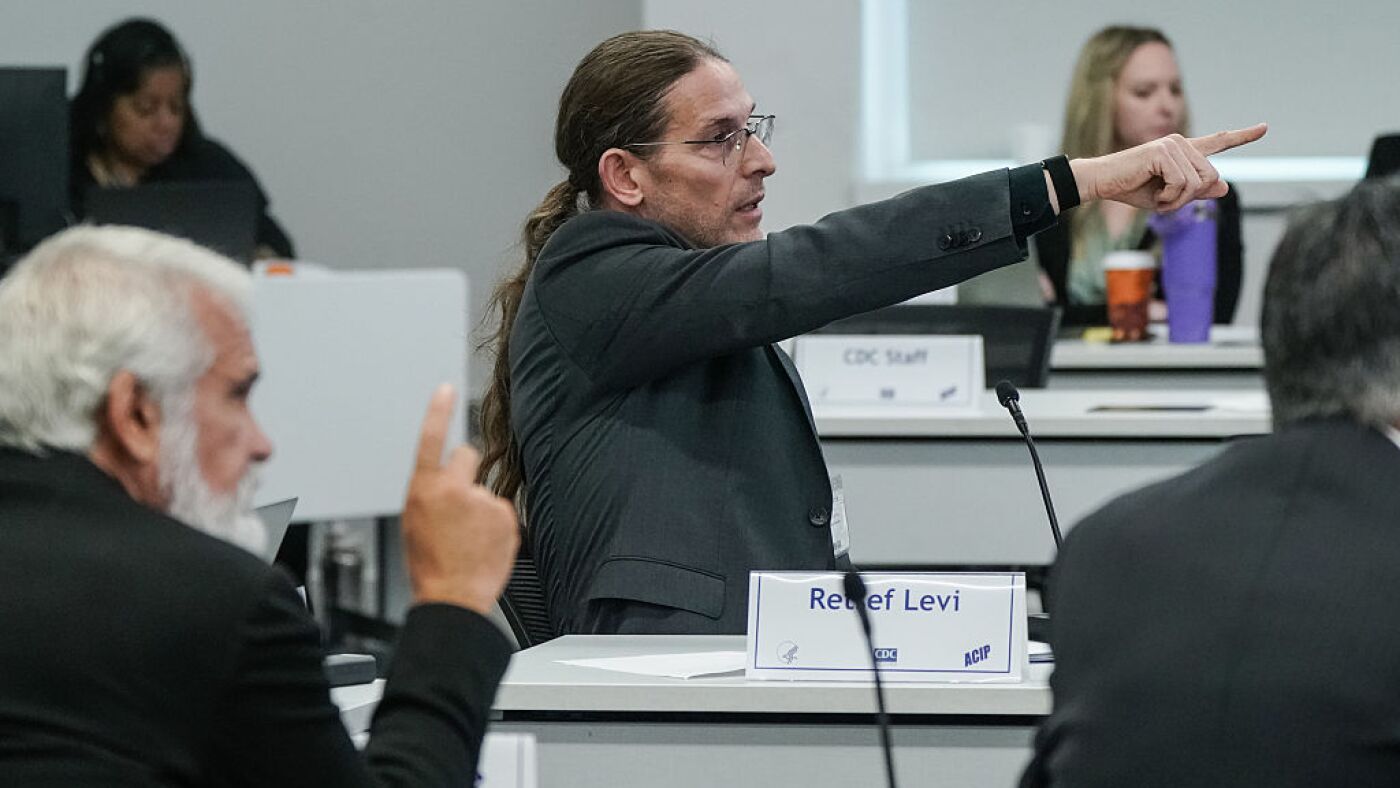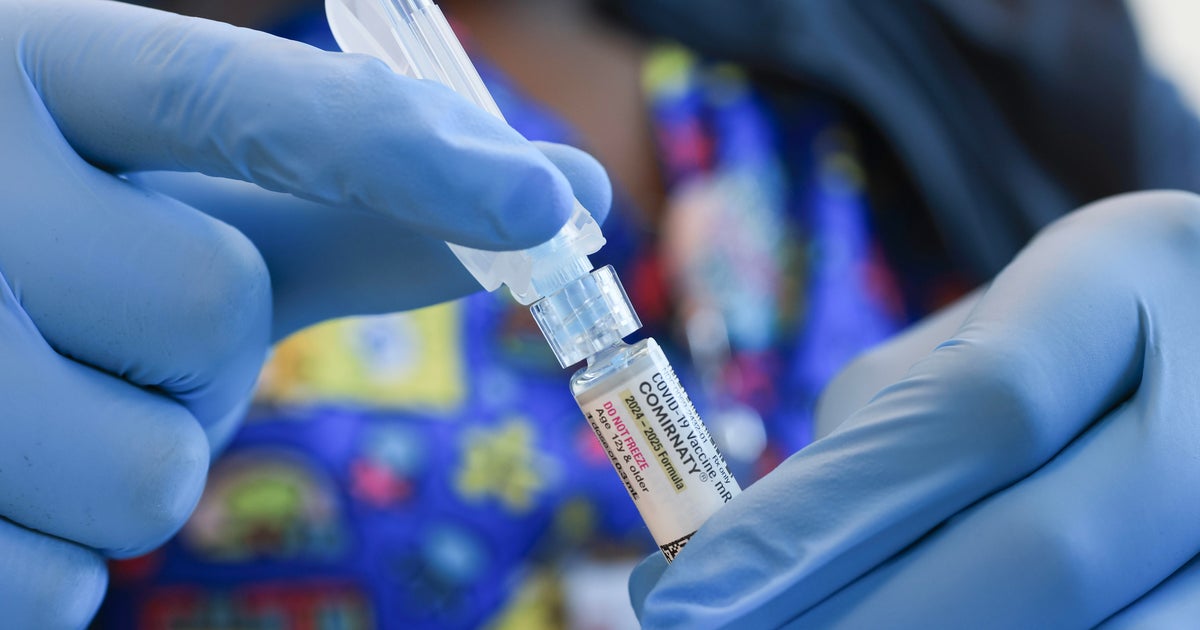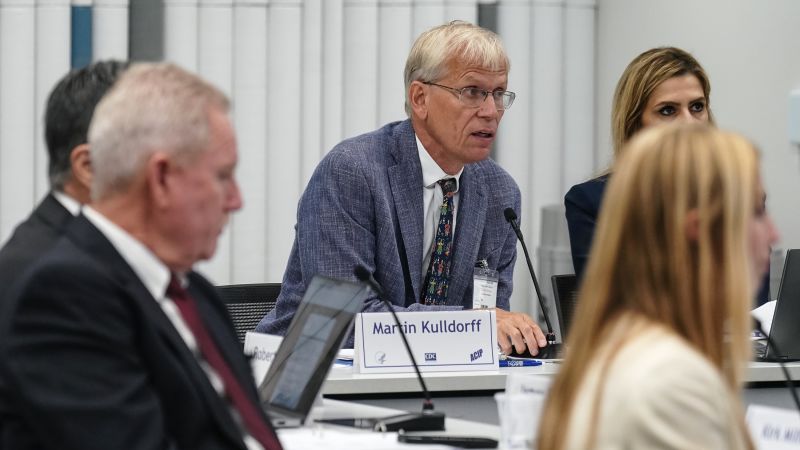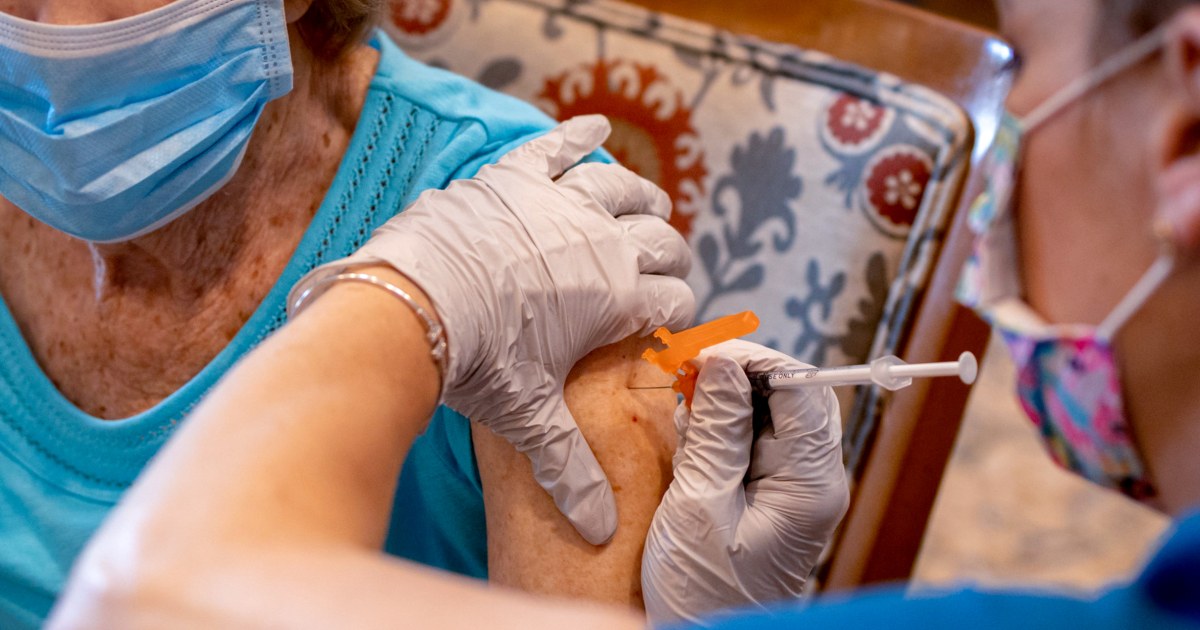New COVID Vaccine Rules: Impact on Uptake and Controversy

Introduction
The CDC's Advisory Committee on Immunization Practices (ACIP) recently voted to add new COVID vaccine rules that could potentially discourage uptake. This decision comes as the country continues to grapple with the ongoing pandemic and the need for widespread vaccination to help curb the spread of the virus.
Key Details
The group voted to require individuals seeking a COVID shot to be briefed on the harms and benefits of the vaccine. This information may help people make an informed decision about getting vaccinated. However, in a close vote, the panel failed to pass a change that would have asked states to require individuals to get a prescription before receiving the vaccine.
This decision has sparked some controversy, with some arguing that it could discourage people from getting vaccinated and potentially slow down the vaccination efforts. On the other hand, some believe that providing individuals with more information can help increase trust and confidence in the vaccine.
Impact
The ACIP's decision to add new COVID vaccine rules could have a significant impact on the vaccination process. While the requirement for a vaccine briefing may help individuals make informed decisions, the failure to pass the change for a prescription may create confusion and potential barriers for some individuals seeking the vaccine.
It is important for the public to understand the reasoning behind these decisions and for states to carefully consider the potential impact on vaccination rates. As the country continues to navigate
About the Organizations Mentioned
CDC
The **Centers for Disease Control and Prevention (CDC)** is the premier national public health agency of the United States, operating under the Department of Health and Human Services and headquartered in Atlanta, Georgia. Its primary mission is to protect public health and safety through disease control, injury prevention, and health promotion both nationally and globally[1][8]. Established in 1946 initially as a single "Center for Disease Control," the agency expanded and reorganized in 1980 into multiple specialized centers, reflecting a broader focus beyond infectious diseases to include environmental health, chronic disease, occupational safety, and health education[7]. The CDC comprises various centers and institutes, such as the National Center for Immunization and Respiratory Diseases, the National Center for Chronic Disease Prevention and Health Promotion, and the National Institute for Occupational Safety and Health (NIOSH), among others. These centers enable the CDC to address a wide array of public health challenges through research, surveillance, policy development, and education[2]. It also plays a key role in emergency preparedness and response, demonstrated notably during the COVID-19 pandemic, where its guidance shaped public health actions despite complex political and social dynamics[8]. Key achievements include pioneering epidemiological research, controlling outbreaks of infectious diseases, advancing vaccine safety and immunization programs, and addressing emerging health threats such as obesity and diabetes. The CDC is recognized for disseminating authoritative health information, including the widely cited Morbidity and Mortality Weekly Report (MMWR), and for its global collaborations with health organizations worldwide[1][3][8]. Currently, the CDC is undergoing organizational adjustments to focus more intensively on infectious diseases, as part of the 2025 Department of Health and Human Services reorganization. This includes absorbing the Administration for Strategic Preparedness and Response while shifting some functions like occupational safety to new entities[1]. The agency’s comprehensive approach, backed by science and government funding, positions it as a critical leader in public health innovation, disease prevention, and health security i
Advisory Committee on Immunization Practices
## Advisory Committee on Immunization Practices (ACIP): Overview, History, and Impact The **Advisory Committee on Immunization Practices (ACIP)** is a federal advisory committee under the U.S. Centers for Disease Control and Prevention (CDC) responsible for providing expert recommendations on the use of vaccines and related agents to control vaccine-preventable diseases in the U.S. civilian population[1][2][6]. Its guidance covers routine immunization schedules for children and adults, as well as nonroutine situations such as outbreaks and travel[2]. ACIP’s recommendations are foundational for both public health policy and clinical practice, influencing everything from school entry requirements to insurance coverage for vaccines[1]. ## History and Structure Established in March 1964 by the U.S. Surgeon General, ACIP was created under Section 222 of the Public Health Service Act to provide ongoing, independent advice to the Secretary of Health and Human Services (HHS) on vaccine policy[1][2]. The committee comprises medical and public health experts, including both voting and liaison members, and operates through regular public meetings and specialized work groups that review evidence and draft recommendations[2][6]. Final recommendations require a majority vote and are published in CDC’s Morbidity and Mortality Weekly Report (MMWR), making them official federal guidance[1][2]. ## Key Achievements ACIP’s recommendations have shaped the U.S. immunization landscape for over half a century, ensuring the integration of new vaccines (such as those for HPV, hepatitis B, and COVID-19) into routine care as soon as they are licensed[1][2]. During the COVID-19 pandemic, ACIP played a pivotal role in rapidly developing and updating vaccination guidelines, including recommendations for multiple age groups and immunocompromised individuals[5]. The committee’s rigorous, evidence-based process is designed to balance scientific rigor with public transparency, often assessing new vaccines in parallel with FDA approval[7]. ## Current Status
ACIP
The Advisory Committee on Immunization Practices (ACIP) is a pivotal federal committee within the United States Centers for Disease Control and Prevention (CDC) that provides expert guidance on vaccine use to control vaccine-preventable diseases in the U.S. civilian population. Established in 1964 by the U.S. Surgeon General, ACIP develops and regularly updates evidence-based recommendations concerning vaccine administration schedules, dosage, and contraindications for both children and adults. These recommendations, once endorsed by the CDC Director, become official federal policy influencing immunization practices nationwide and affect Medicare and private insurance coverage for vaccines[1][2][6]. ACIP comprises medical and public health experts, including 19 voting members and various work groups specialized in evaluating data on specific vaccines and pathogens. The committee meets approximately three times annually in open sessions that allow public comment, ensuring transparency and stakeholder engagement. Members serve four-year terms and disclose conflicts of interest to maintain integrity in their recommendations[2][4][6]. Key achievements of ACIP include shaping U.S. vaccination policy for decades, notably providing a structured benefit-risk framework during the first year of COVID-19 vaccine administration, which was critical for public health decision-making during the pandemic[8]. The committee’s recommendations have broad implications, as they directly influence vaccine availability, insurance coverage policies, and public health practices. However, in June 2025, the committee experienced significant upheaval when Secretary of Health and Human Services Robert F. Kennedy Jr. dismissed all 17 sitting members and largely replaced them with individuals lacking vaccine expertise or holding anti-vaccine views, sparking controversy and concerns about the future of vaccine policy in the U.S.[1][7]. Despite this turbulence, ACIP remains a foundational entity in U.S. immunization strategy, with its expert-driven, evidence-based approach historically central to advancing public health through immunization. Its work continues to be closely followed by healthcare professionals, policymakers, and the public interested in vaccine science and health policy[















